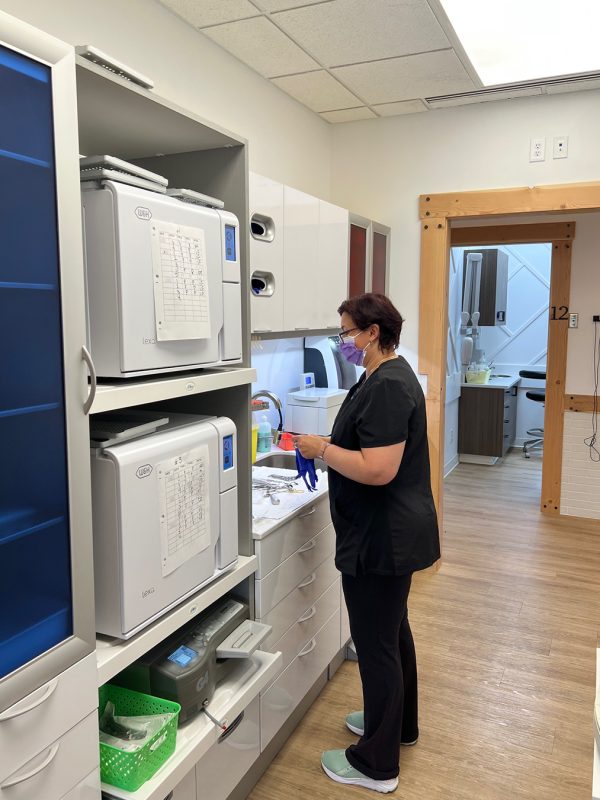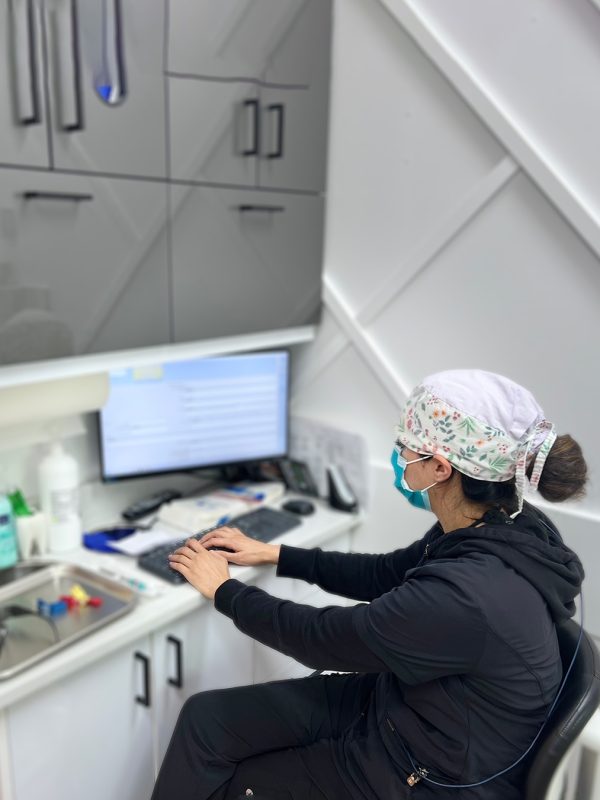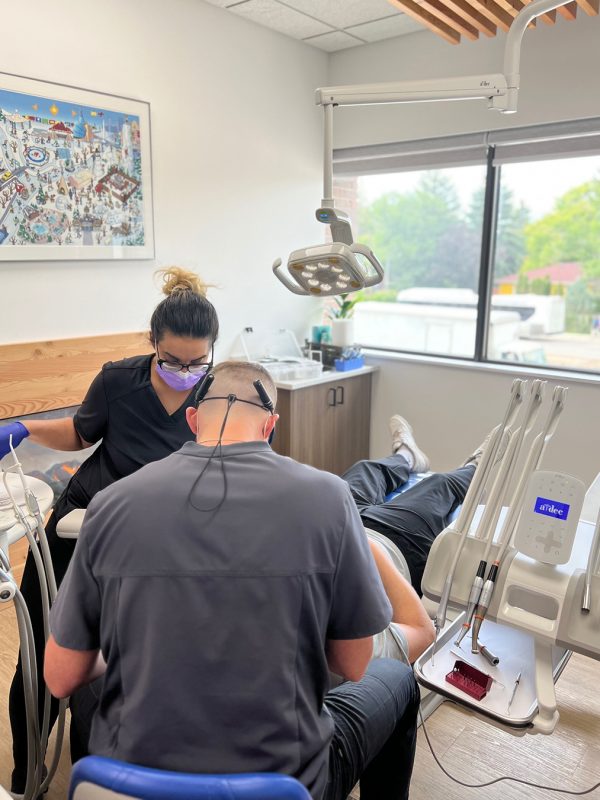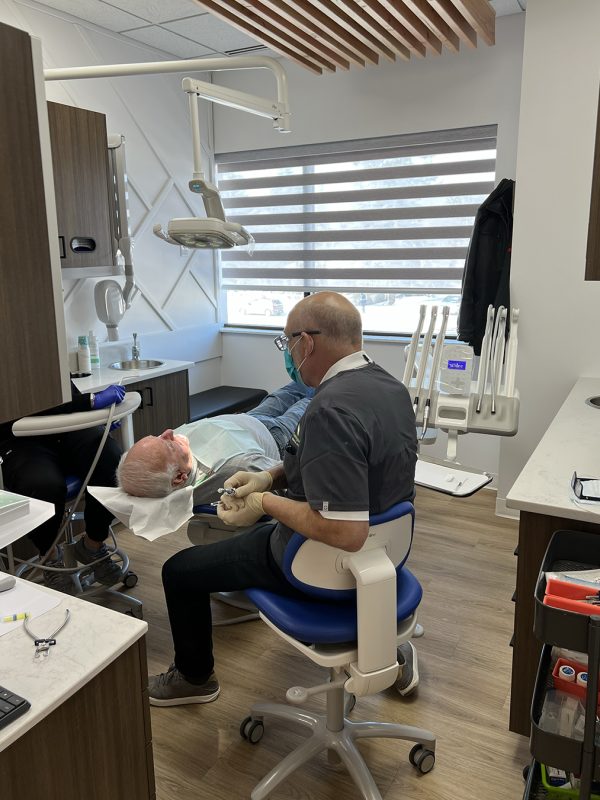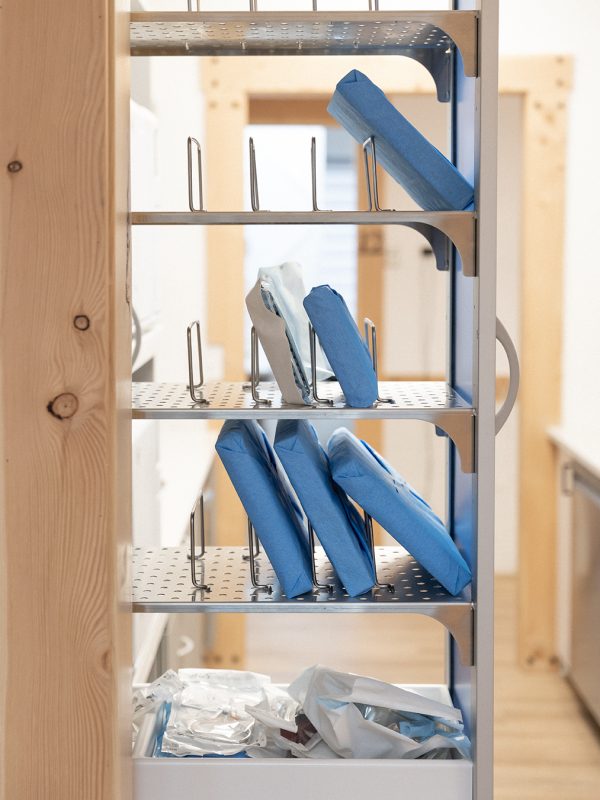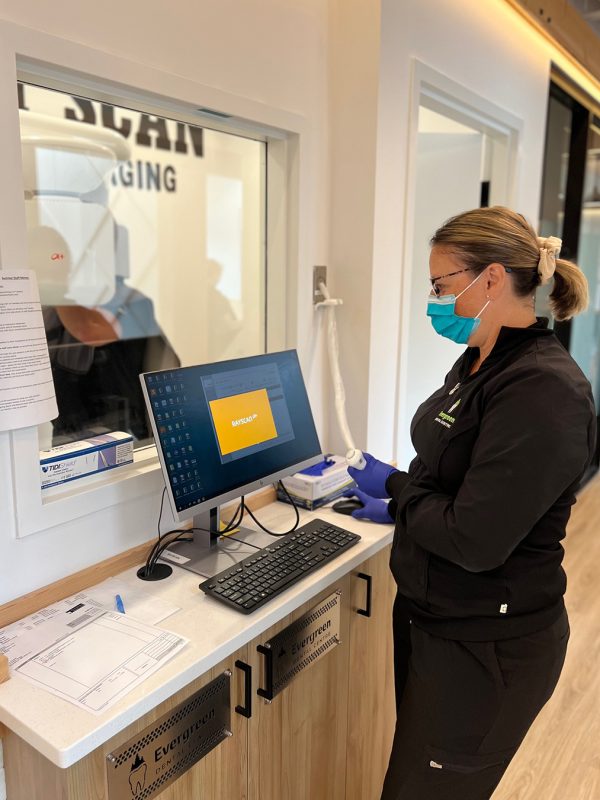If you wear dentures, mastering how to sanitize dentures properly is essential. This crucial step removes bacteria, plaque buildup, and stains that can accumulate over time, keeping your dentures not only looking their best but also ensuring a comfortable and healthy fit. This guide will walk you through 8 easy steps to effectively sanitize your dentures.
Table of Contents:
- Why Sanitizing Dentures is Crucial
- How to Sanitize Dentures in 8 Easy Steps
- Common Mistakes to Avoid
- Conclusion
Why Sanitizing Dentures is Crucial
Sanitizing your dentures goes beyond just aesthetics; it’s vital for your overall health and well-being. Here’s a breakdown of the key benefits:
Preventing Infections
Dentures can become breeding grounds for bacteria, fungus, and other microbes if not cleaned properly. These can lead to infections like stomatitis (inflammation of the mouth’s soft tissues) and thrush (fungal overgrowth). Additionally, it is very common in wearers of removable complete and partial dentures with a worldwide prevalence in the range of 20–67%, according to this journal published recently. Regular sanitization eliminates these harmful organisms, reducing the risk of discomfort and health problems.
Maintaining Oral Health
Sanitization plays a critical role in oral health by:
- Preventing Plaque Build-Up: Plaque on dentures can lead to gum disease, bad breath, and other issues. Regular cleaning removes plaque and prevents these problems.
- Avoiding Bad Breath: Food particles and bacteria trapped on dentures can cause persistent bad breath. Thorough cleaning ensures these are removed, keeping your breath fresh.
- Protecting Gums: Clean dentures help protect your gums from irritation and inflammation caused by plaque and tartar build-up.
Enhancing Denture Longevity
Proper care and sanitization can significantly extend the lifespan of your dentures:
- Preventing Stains and Discoloration: Daily cleaning helps prevent stains from food, drinks, and smoking, keeping your dentures looking their best.
- Avoiding Material Degradation: Using appropriate cleaning solutions and avoiding harsh chemicals prevents the material from degrading, ensuring they remain durable and functional for longer.
- Maintaining Proper Fit: Regular cleaning and inspection help identify early signs of wear and tear, allowing for timely adjustments to maintain a comfortable and functional fit.
Improving Overall Well-Being
Sanitizing dentures contributes to your overall well-being in several ways:
- Boosting Confidence: Clean, well-maintained dentures improve your appearance, boosting your confidence in social interactions.
- Enhancing Taste and Nutrition: Clean dentures improve your sense of taste, making eating more enjoyable. This can lead to better nutrition as you’re more likely to enjoy a variety of foods.
- Reducing Health Risks: Poor oral hygiene has been linked to various health issues, including cardiovascular disease and respiratory infections. By keeping your dentures clean, you reduce the risk of these problems.
How to Sanitize Dentures in 8 Easy Steps
Here’s a step-by-step guide for keeping your dentures clean, comfortable, and free of bacteria with a daily cleaning routine:
- Remove and Rinse: Gently take out your dentures and rinse them under lukewarm water to remove loose food particles. This loosens any remaining debris for easier cleaning.
- Brushing: Use a soft-bristled denture brush and a mild denture cleanser or dentist-approved non-abrasive toothpaste. Gently brush all surfaces, focusing on areas where food and plaque accumulate (grooves and crevices). Avoid regular toothpaste, as it can be too abrasive.
- Soaking: After brushing, soak your dentures to remove any remaining debris and bacteria. Use a denture-soaking solution or a glass of lukewarm water with a denture-cleaning tablet (follow manufacturer’s instructions for soaking time). Soaking loosens stubborn stains and kills bacteria for a thorough clean.
- Mouth Rinse: While your dentures soak, rinse your mouth with water or mouthwash to remove debris and bacteria. This keeps your mouth fresh and supports the health of your gums and remaining teeth (if any).
- Brush Natural Teeth (if applicable) and Gums: If you have natural teeth, brush them thoroughly with a soft-bristled toothbrush and fluoride toothpaste. Pay particular attention to the gumline to remove plaque and bacteria. Brushing your natural teeth and gums promotes overall oral health.
- Denture Care Products: Consider using additional denture care products like cleansers, soaking solutions, and brushes specifically designed for dentures. These clean effectively without damaging the material. Choose dentist-approved products and follow the instructions for safe and effective use.
- Inspection: Before inserting your dentures, inspect them for cracks, chips, or changes in fit that might require repair or adjustment. Contact your dentist if you notice any issues.
- Overnight Storage: When not wearing your dentures, store them properly to prevent drying or warping. Keep them in a clean denture case filled with water or a denture-soaking solution (avoid hot water). Proper storage maintains the shape and fit of your dentures.
Common Mistakes to Avoid
Proper denture care goes beyond just cleaning. Here are some key mistakes to avoid that can compromise the cleanliness, comfort, and lifespan of your dentures:
- Hot Water: Hot water can warp your dentures, causing them to lose their shape and fit poorly. Always use lukewarm or cool water when rinsing or soaking to prevent damage.
- Harsh Chemicals: Avoid household cleaners, bleach, or abrasive toothpaste. These harsh chemicals can damage the denture material and irritate your mouth and gums. Stick to mild denture cleansers recommended by your dentist.
- Ignoring Denture Damage: Don’t ignore signs of damage like cracks, chips, or changes in fit. Damaged dentures can irritate your mouth, cause discomfort, and even injure your tissues. If you notice any issues, contact your dentist for a prompt evaluation and repair.
Conclusion
Following these 8 simple steps will ensure your dentures stay clean, comfortable, and last for years to come. For even more personalized denture care advice and recommendations on the best cleaning products, visit our denture care services or schedule a consultation.





